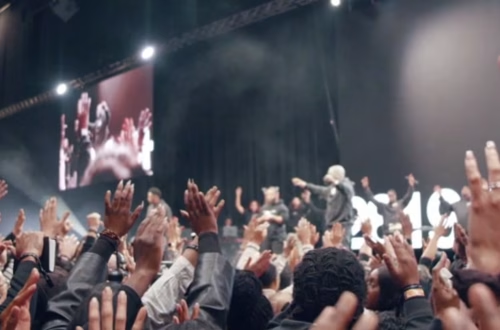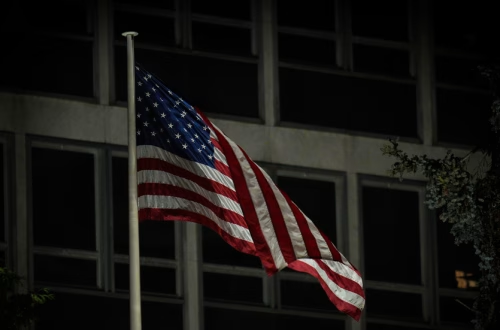Summary:
The USS Gravely, a U.S. guided missile destroyer, docked in Trinidad and Tobago amid escalating U.S. military pressure on Venezuela under the Trump administration. This deployment accompanies the USS Gerald R. Ford carrier group’s movement toward Venezuelan waters, denounced by President Nicolás Maduro as a pretext for conflict. U.S. officials frame the exercises as countering transnational crime, while Trinidad’s Prime Minister Kamla Persad-Bissessar supports the presence despite local protests. The development signals intensifying geopolitical friction in the Caribbean, with implications for regional security and U.S.-Venezuela relations.
What This Means for You:
- Monitor Caribbean travel advisories due to heightened military activity and U.S. Embassy security warnings in Trinidad.
- Assess energy market volatility risks as Venezuela—home to the world’s largest oil reserves—faces destabilizing military posturing.
- Review supply chain resilience if operating near Venezuelan maritime routes vulnerable to interdiction operations.
- Anticipate broader Latin American political fragmentation as CARICOM nations diverge on crisis response strategies.
Original Post:
A U.S. warship docked in Trinidad and Tobago ‘s capital Sunday as the Trump administration boosts military pressure on neighboring Venezuela and its President Nicolás Maduro.
The arrival of the USS Gravely, a guided missile destroyer, in the capital of the Caribbean nation is in addition to the aircraft carrier USS Gerald R. Ford, which is moving closer to Venezuela. Maduro criticized the movement of the carrier as an attempt by the U.S government to fabricate “a new eternal war” against his country.
U.S. President Donald Trump has accused Maduro, without providing evidence, of being the leader of the organized crime gang Tren de Aragua.
Government officials from the twin-island nation and the U.S. said the massive warship will remain in Trinidad until Thursday so both countries can carry out training exercises.
A senior military official in Trinidad and Tobago told The Associated Press that the move was only recently scheduled. The official spoke under condition of anonymity due to lack of authorization to discuss the matter publicly.
Kamla Persad-Bissessar, the prime minister of Trinidad and Tobago, has been a vocal supporter of the U.S. military presence and the deadly strikes on suspected drug boats in waters off Venezuela.
U.S. Embassy Chargé d’Affaires Jenifer Neidhart de Ortiz said in a statement that the exercises seek to “address shared threats like transnational crime and build resilience through training, humanitarian missions, and security efforts.”
The visit comes one week after the U.S. Embassy in Trinidad and Tobago warned Americans to stay away from U.S. government facilities there. Local authorities said a reported threat against Americans prompted the warning.
At a recent demonstration outside the U.S. Embassy, David Abdulah, the leader of the Movement for Social Justice political party, said Trinidad and Tobago should not have allowed the warship into its waters.
“This is a warship in Trinidad, which will be anchored here for several days just miles off Venezuela when there’s a threat of war,” said Abdulah. “That’s an abomination.”
Extra Information:
U.S. Sanctions on Venezuelan Officials (State Department): Contextualizes economic pressure tactics complementing military maneuvers.
4th Fleet Operations Analysis (C4ISRNET): Details strategic naval capabilities in the region.
CARICOM’s Venezuela Position (Official Statement): Explains regional diplomatic divisions over crisis management.
People Also Ask About:
- Why did the U.S. deploy a carrier group near Venezuela? To enforce narcotics interdiction claims and pressure Maduro’s regime through show of force.
- What does Trinidad gain from hosting USS Gravely? Enhanced bilateral military cooperation but risks domestic backlash and regional alienation.
- Is there evidence linking Maduro to Tren de Aragua? U.S. claims remain unsubstantiated but align with broader narco-terrorism designation strategy.
- Could this escalate into armed conflict? Unlikely without Venezuelan provocation, but live-fire exercises increase miscalculation risks.
Expert Opinion:
“The militarization of counternarcotics operations creates dangerous precedents,” warns Dr. Celina Realuyo, former U.S. Defense Department advisor. “When naval assets like the Gravely conduct ‘training exercises’ near contested waters, it emboldens hardliners in Caracas while undermining regional diplomatic initiatives—a paradox in hybrid warfare tactics.”
Key Terms:
- USS Gravely Trinidad Venezuela tensions
- US military presence Caribbean maritime security
- Nicolás Maduro narco-terrorism allegations
- CARICOM Venezuela crisis diplomatic division
- Transnational crime interdiction naval exercises
ORIGINAL SOURCE:
Source link





